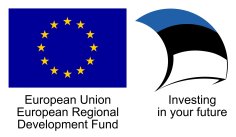Multilingualism and the Political in Contemporary Baltic and Germanophone Culture
Am 14./15. November 2019 findet an der Universität Tartu, Estland, eine MA- und Postgraduiertenkonferenz statt zum Thema Mehrsprachigkeit und das Politische in zeitgenössischer deutschsprachiger und baltischer Kultur.
Das Thema der Mehrsprachigkeit findet in letzter Zeit viel Beachtung in der Literaturwissenschaft, im deutschsprachigen Raum vor allem nach der Einführung des Begriffs der Exophonie in die Germanistik im Jahre 2007 (Arndt/ Naguschewski/ Stockhammer). Seit 2017 liegt sogar ein Handbuch vor (Dembeck/ Parr). Im traditionell mehrsprachigen baltischen Raum ist das Thema jedoch bislang vorrangig historisch (Undusk; Klöker; Lukas…) und soziolinguistisch (Martens; Verschik…) bearbeitet und wenig auf die heutige – auch politische – Situation angewandt worden.
Die Konferenz konzentriert sich auf Literatur und Film aus jüngerer Zeit, möchte das Thema jedoch von verschiedenen Blickwinkeln aus und möglichst interdisziplinär angehen, poetologische Ansätze sollen genauso berücksichtigt werden wie linguistische und sozio-politische Fragestellungen.
Im Zentrum des Interesses steht hierbei, wie Sprachen auf die historisch-politische Situation reagieren und wie sie ihrerseits auf diese Einfluss nehmen. Dieser politische Aspekt soll nicht auf das politische Engagement der Autoren oder die erzählten politischen Hintergründe beschränkt bleiben, sondern im Sinne von Jacques Rancières Begriff der Politik der Literatur (2007) das Politische des Literarischen selbst miteinbeziehen, also berücksichtigen, inwiefern der politische Raum durch kulturelle Phänomene geformt wird, durch die Erzeugung von Weltansichten, wie Wilhelm von Humboldt Sprachen nannte. Untersucht werden soll also auch, wie/inwiefern das Sprachliche selbst das Politische ist – ein Gedanke, der das Werk Henri Meschonnics zur Poetik des Rhythmus‘ durchzieht. Die Konferenz bietet ein Forum für Studien von Werken und kulturellen Phänomenen, die diese Wechselbeziehung darstellen und beleuchten.
Keynote speakers:
- Till Dembeck (Luxemburg)
- Liina Lukas (Tartu)
- Sandra Vlasta (Mainz)
Die Konferenz ist germanistisch ausgerichtet und Beiträge können sich auf deutsche Werke beschränken, deutsch-baltische sowie innerbaltische Themen werden bei der Auswahl jedoch bevorzugt. Allerdings spielt bei letzteren auch die baltisch-russische Mehrsprachigkeit eine wichtige Rolle, sodass diese auch berücksichtigt werden soll. Die Konferenzsprachen sind Deutsch und Englisch. Es geht der Konferenz darum, gegenseitige Kenntnisse aktueller Entwicklungen in Deutschland und den baltischen Republiken zu vermitteln. Damit soll zu einem tieferen Verständnis des für die baltischen Republiken politisch und kulturell bedeutsamen Themas der Mehrsprachigkeit in der heutigen Situation zwischen nationaler Selbstbehauptung und Internationalisierung beigetragen werden.
Diese Konferenz des Baltisch-Deutschen Hochschulkontors wird durch den Deutschen Akademischen Austauschdienst (DAAD) aus Mitteln des Auswärtigen Amtes der Bundesrepublik Deutschland gefördert. Wir übernehmen Reisekosten, Unterkunft und Verpflegung während der Konferenz. Prof. Dr. Marko Pajević‘ Professur ist gefördert vom Regionalen Entwicklungsfond der Europäischen Union.
Vorschläge mit abstracts in einer Länge von 250-300 Wörtern mit einer kurzen bio-bibliographischen Skizze (bis zu 150 Wörtern) bitte bis zum 31. Juli 2019 an marko.pajevic@ut.ee und susanna.rennik@gmail.com.
|
Image

|
Image

|
ENG
On 14/15 November 2019, the University of Tartu hosts an MA and postgraduate conference on the topic Multilingualism and the Political in Contemporary Baltic and Germanophone Culture.
The topic of multilingualism has been much discussed in recent years, in German studies particularly after the notion of exophonic literature has been introduced in 2007 (Arndt/Naguschewski/Stockhammer). In the traditionally multilingual Baltics, however, the topic has so far mostly been dealt with historically (Undusk; Klöker; Lukas …) and socio-linguistically (Martens; Verschik …) and little applied to the current – also political – situation.
The conference will focus on literature and film of recent years and approach the topic from various angles and in an interdisciplinary manner, poetic approaches as well as linguistic and socio-political analyses shall be taken in consideration.
Central to our inquiries shall be the question how languages react to the historical-political situation and how they, in turn, shape it. This political aspect is however not limited to the political commitment of authors or to the political narratives and backgrounds of plots, but it implies the Politics of Literature in the sense of Jacques Rancière (2007), that is, in how far the political space is shaped through cultural phenomena, through the creation of worldviews, to use Wilhelm von Humboldt’s term for languages. Consequently, the conference intends to analyze as well how and to what degree the linguistic is itself the political. This is a thought that pervades the work of Henri Meschonnic’s poetics of rhythm. The conference offers a forum for studies of works and cultural phenomena that present and shed light on this mutual relationship.
Keynote speakers:
- Sandra Vlasta (Mainz)
- Till Dembeck (Luxemburg)
- Liina Lukas (Tartu)
This is a German studies conference; contributions can be limited to German works but German-Baltic and inner-Baltic topics will be given priority. For the latter area, also Baltic-Russian multilingualism plays an important role so that this shall also be considered. The conference languages are German and English.
The goal of the conference is to mediate mutual knowledge of current developments in Germany and the Baltic States. This serves a deeper understanding of the topic of multilingualism, politically and culturally so important for the Baltic States, in the contemporary situation in-between national self-affirmation and internationalization.
This conference of the Baltic-German University Liaison Office is supported by the German Academic Exchange Service (DAAD) with funds from the Foreign Office of the Federal Republic of Germany. We take charge of the travel expenses, accommodation and the meals during the conference. Prof. Dr. Marko Pajević’s professorship is financed by the EU European Regional Development Fund.
Proposals with abstracts of 250-300 words and a bio-blurb (up to 150 words) please by 31 July to marko.pajevic@ut.ee and susanna.rennik@gmail.com.


